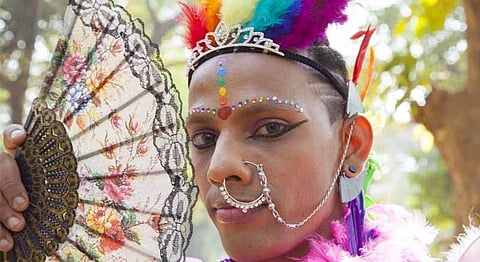
- HOMEGROWN WORLD
- #HGCREATORS
- #HGEXPLORE
- #HGVOICES
- #HGSHOP
- CAREERS
- ABOUT US
- CONTACT US

The Supreme Court’s recent verdict to decriminalise homosexuality and queer sex was a landmark moment for Indian society. A draconian law put in place based on Victorian moral codes of what is deemed as “unnatural sex”. This was a big step forward when it comes to making India a more inclusive and accepting society, at least legally, affording equal rights to all the country’s citizens. However, social acceptance and changing people’s mindsets will definitely take longer. But even in times of darkness and stigma, there have been people, spaces and places that have continued to celebrate queer culture through the years.
From cultural gatherings to film festivals and more – these are some of the people that provide a platform for queer voices, celebration and expression unlike any other.
I. KASHISH Mumbai International Queer Film Festival
Founded in 2010, Kashish has grown to be the biggest queer film festivals in South Asia. From features and short films to documentaries and experimental films, Kashish showcases the diverse voices, realities and complexities of queer life in India and abroad. Founder Festival Director Sridhar Rangayan has always championed a celebration of LGBTQ identities and Kashish uses cinema as a means to entertain as much as educate the audience, create change and make us think.
It has become a place for creative freedom and expressions of a community that has sidelined and silenced for a large part of independent India’s history.
Find more information about the festival on their website here.
II. The Koovagam Festival
The 18-day-long Koovagam festival is held annually between the months of April and May where thousands of transgender individuals from across the country meet at the Koothandavar temple in the Villupuram district of Tamil Nadu. The festival is rooted in the story of Aravan, the son of Arjun and the Mahabharata. The legend states that on the 18th day of the war Aravan, also known as Koothandavar, offers himself as a sacrifice to Goddess Kali to aid them in winning. His only wish to Lord Krishna was to be married before his death, but a man destined for death the next day had no women agreeing to marry him. It is said that Krishna himself took the form of a woman, Mohini, and married Aravan for that night. Many see Mohini as the true embodiment of transgender and the Koovagam festival enacts the events with all the transgender considering themselves as brides of Aravan.
Each day comes with celebrations, singing, dancing and merrymaking and on the 17th evening all the ‘brides’ as married to Aravan by the temple priests. The festival’s last day sees the breaking of their bangles and the widows mourning the death of Aravan.
Beyond the rituals and traditions, the Koovagam festival became a meeting point for the community, a space of celebration of transgender culture. There are blood donation camps that are organised, Swachh Bharat drives and even education and awareness programmes organised that are aimed at the community to spread information especially on issues like various STDs, AIDS, and proper sexual health.
III. Queer Chennai Chronicles - Queer LitFest
Part of the Chennai Rainbow Pride month celebrations this year, the QCC Queer LitFest was a gathering of like-minded individuals that sought varied perspectives on queer literature from, and about India. It was a one-day festival that comprised of presentations, panel discussions, oration, poetry and reading performances. It provided a space to discuss not just queer literature and representation in literature but also a recognition of the writers and translators from the community that are often silenced and/or ignored in the literary world.
Read more about it here
IV. Queer and Allies Art Festival (QAAF)
Founded in 2015 by Mist, an online collective of LGBTQ activists – QAAF provides one meeting ground for performers, artists, craftsmen and other creatives. They host performances, installations, exhibitions and screenings of films by members of the LGBTQ community as well as all allies. Anyone can register and participant to showcase their creativity.
“Together, you, me, queer and straight artists alike, can come together in solidarity to dialogue about sexuality, diversity and rights, and your contribution will make this all possible,” their website states.
Find more information about upcoming events here.
V. Pride March
Nothing says freedom, pride and love than a Pride Parade. While they may have started out small with a few people taking to the streets, pride marches have grown in number and state occurrences over the years. Delhi, Bangalore, Mumbai, Chandigarh, Chennai, Bhubaneswar, Lucknow, Kolkata and Pune are just some of the places where Pride Marches regularly take place. What is heartening to see over the years is the throwing down of masks and an increase in the number of allies, parents and family members out in support of their loved ones.
Following your local LGBTQ groups on Facebook is the best way to know about any upcoming Pride Marches and events.
If you liked this article we suggest you read:
